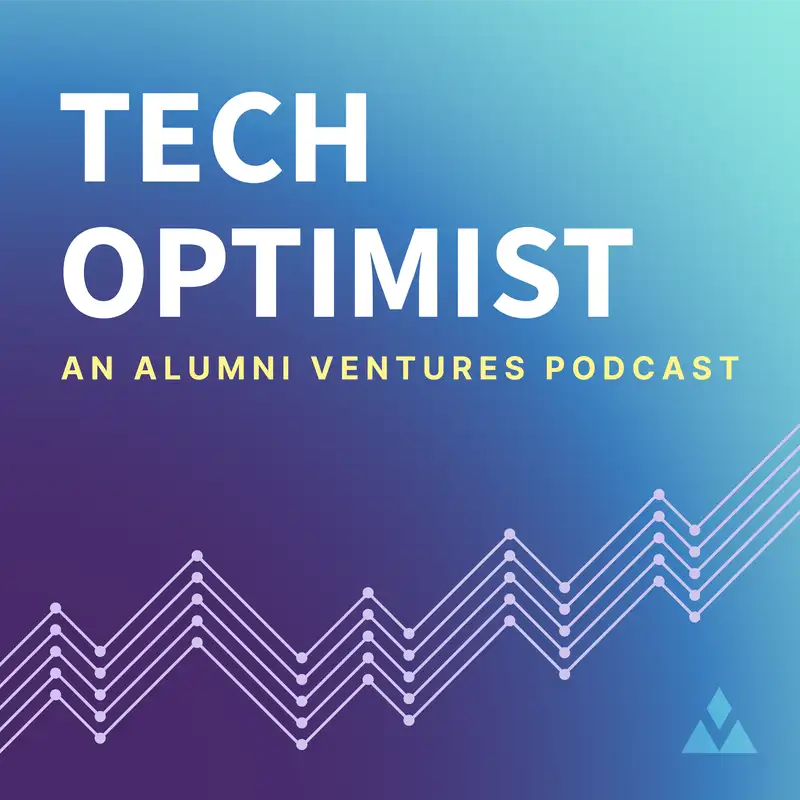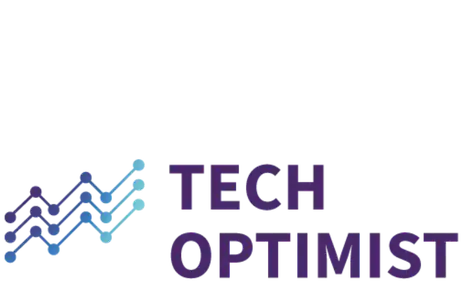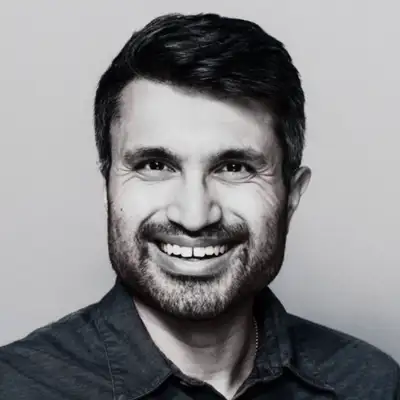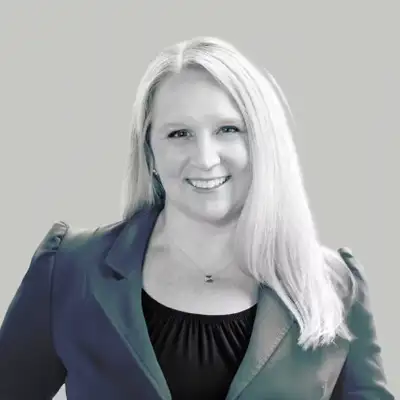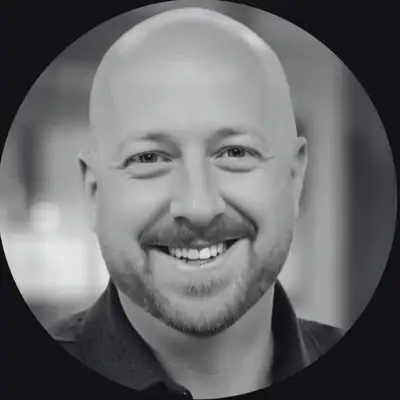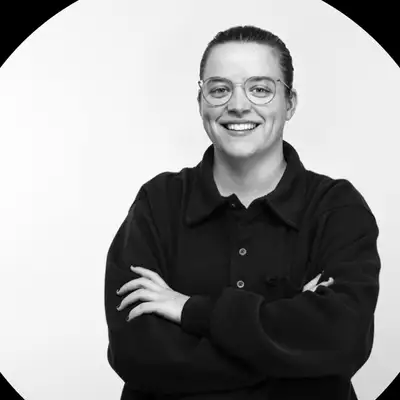#93 - Meet the Startup Revolutionizing B2B With Revenue Automation
Samantha Herrick:
Hello trailblazers and dreamers. Welcome to The Tech Optimist, the podcast where innovation takes center stage and tomorrow's breakthroughs fuel today's conversations. I'm Samantha Herrick, your guide and producer through this whirlwind of visionary ideas and transformative technologies. But today we're flipping the script. No rules, no boundaries, just raw, unfiltered exploration into the ideas shaping our future. If you think you've seen it all, think again. This is The Tech Optimist, where we dare to imagine differently. Hang tight. After this brief message and disclaimer, we'll get right back to the action.
Speaker 2:
Do you have a venture capital portfolio of cutting edge startups? Without one, you could be missing out on enormous value creation, and a more diversified personal portfolio. Alumni Ventures, ranked a Top 20 VC Firm by CB Insights, is the leading VC firm for individual investors. Believe in investing in innovation? Visit av.vc/foundation to get started.
Samantha Herrick:
As a reminder, The Tech Optimist podcast is for the informational purposes only. It is not personalized advice, and it is not an offer to buy or sell securities. For additional important details, please see the text description accompanying this episode.
Think about this for a moment: Over half of all B2B invoices in the United States, 55%, are overdue. That's trillions of dollars stuck in limbo, creating massive headaches for small and medium-sized businesses. These delays don't just clog financial pipelines, they stunt business growth, drain resources, and leave finance teams buried in inefficient processes.
Ali Hussain:
I am the founder and CEO of Tabs. We are a New York-based tech company focused on the office of the CFO.
Samantha Herrick:
But what if there were a smarter way to manage accounts receivable? Enter Tabs, our guest company today, an AI-powered platform co-founded by our guest today, Ali Hussain and Deepak Bapat.
Ali Hussain:
And so fast-forward now, Tabs is the first AI-native revenue automation platform. Our ultimate mission is to help companies save time, collect faster, and report more accurately.
Samantha Herrick:
With a mission to reimagine B2B AR processes, Tabs uses cutting edge technology to tackle these inefficiencies head on. From automating invoices and payments to delivering insights that can transform a company's trajectory, Tabs is reshaping how businesses manage their cash flow. Ali Hussain, who previously scaled Latch from seed to IPO, knows these challenges intimately. Drawing from his experience, he's built Tabs to streamline operations and help finance teams collect faster, all while saving them valuable time. So today we're diving into how Tabs is solving one of the biggest bottlenecks in B2B commerce.
Ali Hussain:
Broadly felt, there's a lot to be desired on perhaps the most important part of the finance stack, which is the flow of funds in and all things revenue. And about two-plus years ago where me and my founding team saw AI was headed, we relatively felt it was a strong moment for why now for all things revenue given the complexity of commercial records.
Samantha Herrick:
Today, we're diving into the career of someone who truly knows how to navigate the intersection of operations, technology, and innovation. Ali Hussain, the CEO and co-founder of Tabs. Ali's journey is nothing short of extraordinary, blending academic excellence, entrepreneurial spirit, and a knack for solving real-world problems. And his professional career took off at the Boston Consulting Group, where he honed his skills in strategy and operations. He then joined Latch, a smart lock company as COO, growing it from its early days to its successful IPO. This experience exposed him to the inefficiencies in accounts receivable processes, inspiring the creation of Tabs in 2023. As CEO of Tabs, Ali has already led the company to secure $7 million in seed funding, and a recent $250 million Series A, bringing innovation to the AR space with AI-driven technology. He's not just a leader, he's someone reshaping how B2B businesses manages their cashflow.
Ali Hussain:
And the way we do that is our native platform takes all unstructured customer records. So think your contracts, MSAs, purchase orders, usage milestones, and activates that to really powerful operational workflows, whether that's billing, cash collections, revenue recognition, and provide a really, I think powerful horizontal platform for finance teams in B2B.
Wesley Yiu:
Excellent. So any type of finance function or finance professional in a business that's generating revenue would benefit from this type of platform.
Samantha Herrick:
Now let's shine a spotlight on Wesley Yiu, a partner at Alumni Ventures and one of the sharpest minds driving innovation and investment in today's fast-paced venture capital landscape. Wesley has been with Alumni Ventures since 2018, building his career through roles as senior associate, principal, and senior principal before stepping into his current leadership position as partner. Wesley also leads as a partner at Triphammer Ventures, a fund dedicated to leveraging the power of the Cornell alumni network to identify and standout startups. At Alumni Ventures, Wesley evaluates investment opportunities, manages portfolios, and connects founders to the resources they need to thrive. Some of his recent investments include cutting-edge companies like Cytovale, Centaur Labs, and Operant, spanning diverse sectors from FinTech to IoT and SaaS.
Every startup starts with a problem, and Tabs is no exception. Ali shares the driving force behind his idea, a deep frustration with inefficiencies and finance workflows and the untapped potential of AI. From understanding the complexity of unstructured data to harnessing AI for revenue operations, Ali paints a picture of why now was the perfect time to launch Tabs.
Wesley Yiu:
Did you found Tabs given personal experience, any personal challenges you had in your prior career that led you to this aha moment that this needs to exist?
Ali Hussain:
Yeah, I think twofold. I mean, I've been a COO for many years, and often the COO deals with the ERP stack and so I've taken businesses from QuickBooks to NetSuite and just saw the amount of just human capital and mental drain it takes to do this manually in a product like NetSuite or QuickBooks. And so that was highly influential in starting Tabs. And then on that it was just a lot of time spending doing my 10,000 hours with a bunch of other finance leaders to see was this just Ali being a bad operator, or is this a broader theme? And I ultimately validated that, the verdict is still out on my operational capabilities, but it is at least a consistent theme seen amongst hundreds and hundreds of other B2B teams that I was able to speak with.
Wesley Yiu:
And you've been a former startup executive prior to this. You were at Latch for a number of years. You pretty much started from the early days and all the way through when it became a public company.
Ali Hussain:
Yeah.
Wesley Yiu:
How has your prior experience as a startup executive impacted how you build Tabs as a new company?
Ali Hussain:
Absolutely. I think as an operator and just getting to be a great ride like I got to at Latch is you get to learn a lot about how companies are built. And ultimately doing that, I kind of over my career fleshed out three themes that I think are actually what matters most in terms of being a founder or a entrepreneur. One is you go after a large TAM, and so the number of companies that are B2B in the US and just globally is massive that rely on finance stacks like an ERP that need to do workflows like billing, rev rec, collections, payments. That is a fundamental operational use case in a very large TAM. So that's theme number one I learned. The second is if you go after a large problem, the number one thing that matters is what is the technological change that's happening in this space and how do you tie that to that problem with a ton of focus?
And so that's number two, which is technology goes through waves, the general problem stays the same. How do you really focus at the intersection of the why now against the really big problem or opportunity statement to go after? And the third one is the team just matters. If you can pull together a bunch of superpowers that are bigger than yourself and get them to be excited to work together, collaborate, that mental capacity that is far greater than yourself working together and compounding with focus can really build something really interesting and really compelling. I think that's the way I like to build products and I've been very fortunate to see that kind of play out in the last year.
Wesley Yiu:
Successful companies are obviously built by successful teams. Obviously you're the co-founder and CEO, but you've brought great people along for the ride with you as other co-founders. You touched upon it a little bit in the previous question, but why did you choose your specific co-founders? What are their key skill sets? How do they coordinate with you to help make Tabs successful?
Ali Hussain:
Yeah, I think a few things. I think when I think about company building ultimately as the CEO, you have to understand what you're strong at and where you need really intelligent and powerful minds to help things come together. And so when I think about company building, you need to drive demand and you have to build supply demand, meaning is there a customer for this? Are they willing to pay? That is a combination of forms of marketing, sales, sometimes customer success, and then there's a massive supply component. How do you think about the product you create? How do you with velocity build software or engineering around that? How do you provide the operational know-how or the implementation, know-how to kind of bring it all together? And so when I thought about my founding team, what I was really looking for were what were some of the skill sets that I, as a non-technical founder and oftentimes I don't claim to be a visionary product founder either need to have in my day-to-day collaboration to have that all happen in parallel very quickly.
So I need someone who could be as good, if not better than me on the demand side so that we could be with customers 10 to 15 hours a day and really understand the demand and the insight. But then I needed really thoughtful product and engineering minds that as we drove the insight and we thought more about what's happening with AI today, we could both quickly design and ship product because a lot of the early days is velocity, especially if you're going to bring out a B2B product where you're asking for high often four or five, six figure. And so that together kind of worked really well. The other part is you need a group of people who are willing to be very collaborative and create a very psychologically safe environment so that there's really good deliberation and alignment so that people can kind of go then and divide and conquer and come back very aligned. And I'd say that formula was really important in how we designed the team and is incredibly important in how we've been able to keep up the momentum 24 months later.
Samantha Herrick:
All right. This seems like a good time to take a break. So here's an ad and we'll be right back.
Speaker 2:
Exceptional value creation comes from solving hard things. Alumni Ventures Deep Tech Fund is a portfolio of 20 to 30 ventures run by exceptional teams who are tackling huge opportunities in AI, space, energy, transportation, cybersecurity and more. These game-changing ventures have strong lead venture investors and practical approaches to creating shareholder value. If you are interested in investing in the future of Deep tech, visit av.vc slash Deep Tech to learn more.
Samantha Herrick:
Raising capital in today's market is no small feat, but Tabs secured investments from industry giants like Lightspeed and General Catalyst. Ali discusses the importance of simplicity in storytelling, building investor trust and why founder recommendations are the ultimate game changer in the fundraising process.
Wesley Yiu:
You guys have been extremely successful in raising capital, not only raising capital, but also from great investors around the table such as Lightspeed, General Catalyst for example. What has been the reason for that success? How are you able to navigate this tougher environment, so to speak, from a fundraising perspective?
Ali Hussain:
Yeah, I'll talk about I think the things that matter the most and some of the tactical things that are also very valuable. I think one of the things the last couple of years a lot of founders kind of over-complicate is in the world of AI and all these technologies, they start creating a lot of talking points that sound really good to themselves and their teams, but can be incredibly confusing when they try to communicate their value prop externally. And I'd say the number one value or thing I found to be the most helpful is simplicity. And so though we're all excited about the very complicated technologies we're building and AI and all of that, I think coming back to a really simple first principles in which you communicate your mission statement, what is the problem you're solving? What's the why now moment? How are you doing it today and where does that go?
Doing that in a way where almost anyone can understand not just a venture capitalist or a technologist, but your aunt or your uncle or your cousin or your friend who has no interest in technology can be a really good test on how you communicate very simply. So I'd say number one is just very simple communications and in that deep trust that within what you are doing today versus over time you are focused and customer-obsessed, meaning you're able to deliver a solution that meets the customer where the puck is now, but is hyper-cognizant of where the puck is going and how the venture dollars will help you accomplish both, I think is the most important thing.
The second piece, Wesley, I think I see this all the time and it was hard for me at first too, is revenue just matters. And even at the pre-seed, seed stage, a lot of founders, including myself in the early days, it's like, well, we have to build all this stuff and there's all these other things, but at the end of the day, the number one thing, particularly if you're the founder/CEO, is you need to buckle down and show some real demand for the product. And every stage really aspire to drive the highest revenue targets and make no excuse about it. And I think the revenue word is more important than ever, even if it's not going to be the highest revenue, but you have to be very pragmatic because all of the other things figure themselves out.
Those are the two things I'd say. I think tactically it's always important to run a process like raising around is not rolling admissions, be very thoughtful about when you're ready for your materials, your model, your data room, and then go hard over a two to three week process. Do not just for the sake of it, have a nine-month coffee socializing period. This is not rolling admissions. And then I've been very lucky that you want your intros to come from other amazing founders. I think a lot of times people look for a direct connection or an investor to make an investor on investor introduction, but I think the most powerful momentum comes from a founder that has successfully worked with an investor to say, "Look, I know this other founder or I've seen their product and it's excellent." Nothing drives the momentum in the flywheel like a founder standing up for another founder.
Wesley Yiu:
Yep, absolutely. I mean for us, we have known you for a number of years prior to Tabs. We kind of got to know you when you were still at Latch. That's kind of the way we got comfortable with you and the vision that you set out for your new company. So I definitely think relationships important, instructions are important.
Ali Hussain:
100%.
Wesley Yiu:
As investors ourselves we've seen the bar for fundraising I think has been raised quite a bit. And to your point, revenue, attraction, clear demonstrated product market fit is extremely important for an early stage company. So it sounds like you guys got that covered when you guys went into the fundraise process on your side.
Ali Hussain:
Totally. And it was through, obviously it was A, and I talked getting great mentorship on it. Obviously nothing is stronger than really good customer testimonials too. And I did see more than any time investors really doing diligence at the end customer side, understanding who the customers were, directly reaching out, getting really intense conviction that there's something really real before engaging. I think all of those things are like first principle things that matter.
Wesley Yiu:
Absolutely. So 2024 I think was a strong year for you guys, new customers fresh off of a Series A. What's kind of the near term plan? We just, Marson's at 2025 here, what's the near term plan for Tabs and what's your longer term vision for the company?
Ali Hussain:
Yeah, I think 2024 was a lot of fun. We were lucky to get capitalized, build some really compelling products, and most importantly serve a very broad and diverse base of customers. And so in many ways the most important thing is to rinse and repeat. We have a long way to go to build a category-defining company. When I think about 2025, my entire mantra was to the team actually it was funny at all hands earlier this week, which is 2025, if it looks a lot like 2024, it's a really good year, meaning, you stay focused and are maniacal about driving demand with the customer. You focus on the same ICP, and you rinse and repeat. So that's number one.
Number two is you continue to build product with intense velocity. I do believe ultimately, even if not everything is perfect, velocity is the number one driver towards our path towards more product market fit. And so the tagline really Wesley, 2025 is a little bit more the same, except just doing it faster and bigger. And that would be like 90% of the tagline for the next year.
The parts that I'm really excited about, as you kind of mentioned earlier, we've been lucky to be one of the first AI native companies in the space, and a lot of our wedge was based around how we take unstructured to structured data. Now that we have a large population of customers and high throughput in the platform, the amount of more intelligence we can build for our customers within the platform that is unique to what a traditional system of record could have done is a part I'm really excited about. Obviously like many other AI-forward companies, we're all trying to figure out what's the best way to prioritize and where to build versus partner, but I think though there is a lot of noise around Agentsha, there will be some really cool things throughout the year both for our peer companies that are in the AI space, not necessarily in finance, but in other categories in us, just start to truly bring more semi-agentic magical experiences within platform that help finance teams save time, collect faster, and do more with less.
And that is a broader category that not everything will get accomplished in 2025, but I think we'll see a step function of experiences that were otherwise not possible.
Wesley Yiu:
Okay. You mentioned ICP earlier. For you guys, what's your core ICP and why should that community be excited about Tabs?
Ali Hussain:
Yeah. Our ICP tends to be companies today that are growing fast. Obviously have hit seven figures of revenue. If you're still pre-product market fit, early customers, you have other challenges you want to solve first before worrying about revenue in some ways. But once you start to gain traction and you start to hit seven figures of revenue, we tend to be a great partner to come in to help you be more efficient in revenue administration from a finance standpoint, all the way up to the mid-market or early enterprise, that's our core customer. We tend to do really well in high growth venture companies, private equity companies, growth stage fund companies, all that are B2B tends to be within our ICP. I think the reason they're excited is most of those finance teams are either very nascent, sometimes even led by a fractional lead, or a very lean finance team.
And I think particularly post the reset of 2022, a lot of finance teams are even more lean and are looking to a much more fine-tuned finance stack to do more with less. And so what we are seeing is companies are even staying on products like QuickBooks for much longer, or trying to be on a less buggy and services-based NetSuite or Sage or other ERP system, and they're heavily leaning on products like Rippling, Ramp and Tabs to run a lot of the workflows that otherwise would've been highly relied on human spreadsheets and services work. Ultimately, I think why all of the B2B finance and just general operating teams should be excited about Tabs is it's a time of growth again. Many of you're making investments across the business. Finance is an area where you can now officially lean more on tooling, and start to see some AI native tooling that can allow you to keep the team's focus more on strategic endeavors and defer a lot of the more tactical things like billing, RevRec, cash forecasting, renewal management to true operational AI software like Tabs.
Wesley Yiu:
Great. Last question from me, zooming out a little bit further. You guys are obviously a FinTech company. FinTech as a whole has been a little bit more troubled the last couple years as the environment has changed. Now that we're in 2025 here, do you see signals that there maybe is a new renaissance for the category of the space?
Ali Hussain:
I think so. I think the area that's going to be really exciting about FinTech, I think there was a lot of reset or competition or commoditization of the actual technical elements of FinTech payments and things that we've traditionally seen tied to FinTech technology. I think the Renaissance is going to happen in the things that make FinTech adjacent workflows and work more efficient and more magical. And to me, I think in the renaissance of three years ago of FinTech, what often got lost was the adjacent workflows and human-related dependencies that I don't think made as many advancements due to the pre-AI era. And I think where the Renaissance is going to happen, Wesley, is the magical experiences around the technical or commoditized parts of FinTech like payments that help drive more efficiencies. And so for example, in something like B2B payments, in the United States, the vast majority of payments is still happening through non-digital or analog payment flows like ACH, credit, wire, even physical check.
And I think even in the move in COVID, there's still a big installment of moving to more digital types of payments. Where I think experiences get magical is where technologies like Tabs actually can be highly influential on what ways customers pay because they drive insights. They actually tell a CFO, "Look, you should accept credit card payment, not because it's easier, but it brings down the average days to pay by 20 days, or your bad debt goes down." And that level of intelligence to drive the why versus the what is going to be incredibly powerful, I think in the broader FinTech space over the next 36 months. And we're hoping to be a big part of that tailwind.
Wesley Yiu:
Fantastic. Ali, this is great. Appreciate you taking the time to share insights since using the community to Tabs. Can't wait to see what's in store for you guys for this year as well as the future as well.
Ali Hussain:
Absolutely. Wesley, thanks for being an amazing investor, partner and excited for listeners to hopefully consider applying to be a part of the Tabs family as a team member or hopefully as a partner or customer. So thank you so much for the time.
Wesley Yiu:
Excellent. Folks, thanks for joining us on The Tech Optimist podcast today. Stay tuned for future episodes.
Samantha Herrick:
Thanks again for tuning into The Tech Optimist. If you enjoyed this episode, we'd really appreciate it if you'd give us a rating on whichever podcast app you're using, and remember to subscribe to keep up with each episode. The Tech Optimist welcomes any questions, comments, or segment suggestions. So please email us at info@techoptimist.vc with any of those, and be sure to visit our website at av.vc. As always, keep building.
